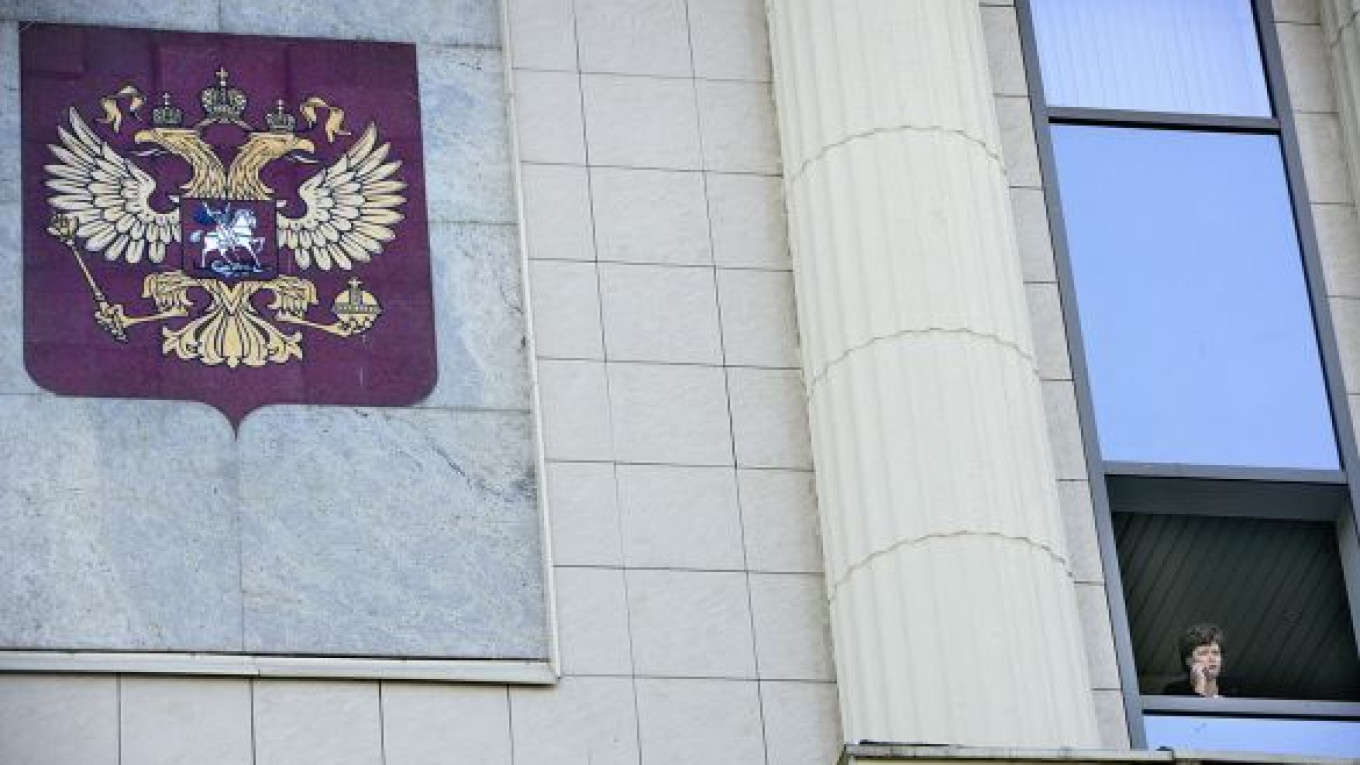Most court rulings must be published online in their entirety, including the names of all parties involved, except witnesses, from Thursday in an initiative that proponents say will improve transparency at the expense of privacy.
The change, introduced in a law signed in 2008, is one of the first steps in a campaign against "legal nihilism" launched by Dmitry Medvedev at the start of his presidency.
Court rulings, which must not be published before they come into force, are to provide the names of all lawyers, prosecutors, defendants and judges involved in trials.
The law makes exceptions for cases dealing with classified information, state security, adoptions, family disputes, sexual abuse, minors, forced psychological treatment and the disabled.
About 5 million rulings will be published by the end of the year, and the number will grow to 10.6 million next year, the RAPSI legal news agency reported, citing the Supreme Court.
The authorities have opened about 9,000 web sites where courts are supposed to publish their rulings.
In a separate bid for transparency, the presidium of the Supreme Arbitration Court began releasing online videos of its hearings in June. The service is currently limited to pre-recorded videos but will include live broadcasts this fall.
Yelena Golubeva, director of the St. Petersburg-based Institute for Information Freedom Development, said the new legislation was important for the court system and society.
"Now it will be hard to hide some unlawful decision because anyone can read it," she said.
Golubeva said the law poses no serious threat to privacy because the courts will only publish the names of participants, not passport data and addresses.
But Dmitry Agranovsky, a prominent lawyer, criticized the law as "absolutely unethical."
"Strangers shouldn't intrude into people's private life," Agranovsky told The Moscow Times. "All this publicity will amount to additional punishment for defendants who have already suffered enough."
Golubeva said a lot will depend on how the law will be implemented. The concern is warranted, considering gaffes such as a blunder by the Supreme Arbitration Court last year when it published a ruling ahead of the hearing where it was supposed to be handed down. The incident was played down as a “mistake.”
Court marshals want to guard courts around the clock during high-profile trials, Vedomosti reported Thursday.
Most court buildings are currently guarded by police officers at night, but the Federal Court Marshals Service said it wants to take over the job during the most important cases despite a lack of staff.
A Message from The Moscow Times:
Dear readers,
We are facing unprecedented challenges. Russia's Prosecutor General's Office has designated The Moscow Times as an "undesirable" organization, criminalizing our work and putting our staff at risk of prosecution. This follows our earlier unjust labeling as a "foreign agent."
These actions are direct attempts to silence independent journalism in Russia. The authorities claim our work "discredits the decisions of the Russian leadership." We see things differently: we strive to provide accurate, unbiased reporting on Russia.
We, the journalists of The Moscow Times, refuse to be silenced. But to continue our work, we need your help.
Your support, no matter how small, makes a world of difference. If you can, please support us monthly starting from just $2. It's quick to set up, and every contribution makes a significant impact.
By supporting The Moscow Times, you're defending open, independent journalism in the face of repression. Thank you for standing with us.
Remind me later.


